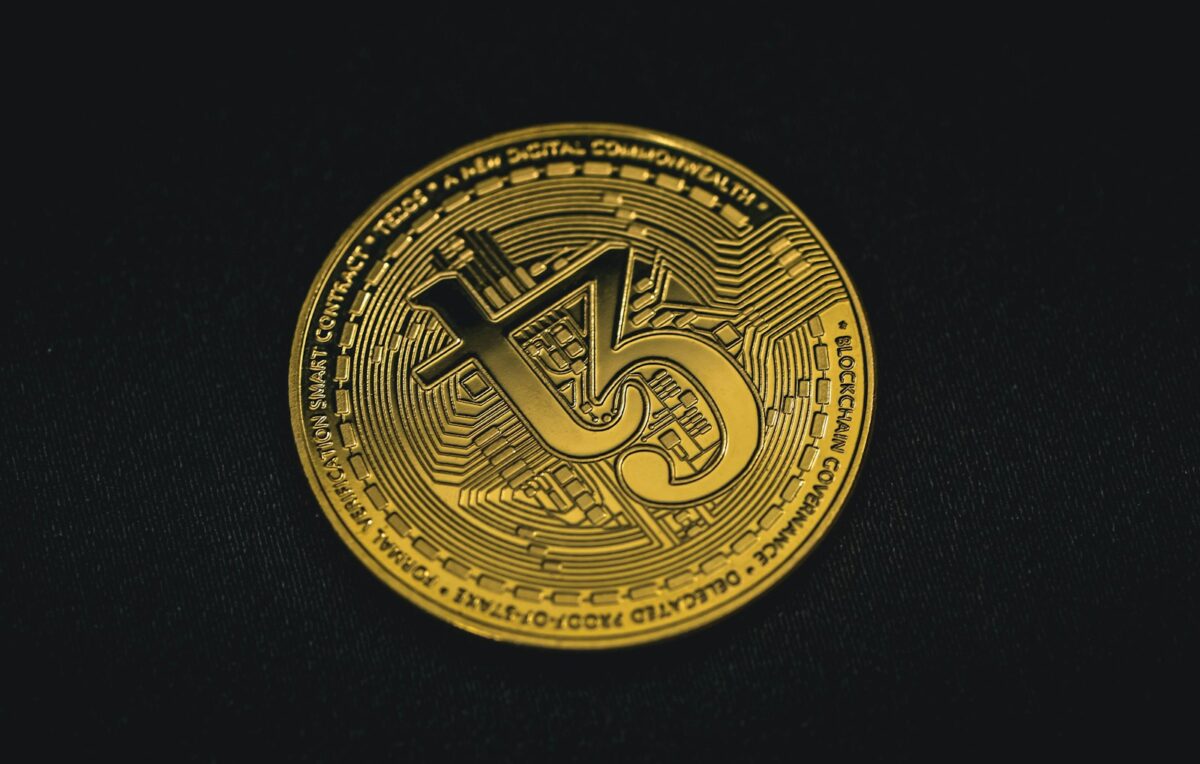
Online crypto courses

Acquiring robust expertise in decentralized systems requires access to specialized platforms designed for systematic education. These resources offer organized modules that progressively develop skills, ensuring learners build a solid foundation in cryptographic principles and distributed ledgers.
Interactive lessons and practical exercises form the core of effective knowledge transfer, enabling participants to experiment with real-world scenarios. Such environments facilitate deeper comprehension by connecting abstract concepts like consensus algorithms and smart contracts to tangible applications.
Certification pathways embedded within these educational frameworks provide formal recognition of proficiency, enhancing credibility for those seeking advancement or specialization. Selecting programs with clear learning objectives and measurable outcomes optimizes both time investment and mastery of complex blockchain mechanisms.
Getting Started with Structured Blockchain and Digital Asset Education
Acquiring foundational skills in blockchain technology and digital asset management requires engagement with carefully designed learning platforms that offer structured pathways. These educational environments combine theoretical concepts with practical applications, enabling learners to build competencies ranging from cryptographic algorithms to decentralized finance protocols. Selection of a program should consider its depth of content, instructor expertise, and availability of hands-on projects that reinforce technical understanding.
Certification plays a critical role in validating acquired knowledge and demonstrating proficiency to potential employers or collaborators. Recognized credentials often follow completion of comprehensive modules covering consensus mechanisms, smart contract development, tokenomics, and regulatory frameworks. Programs offering such accreditation typically integrate assessments that test both conceptual mastery and applied problem-solving abilities.
Choosing Educational Platforms for Skill Development
Several platforms specialize in delivering modular instruction tailored to various experience levels within the blockchain sector. For example, some platforms utilize interactive coding environments where participants can experiment with Solidity for Ethereum-based contract creation or develop nodes on alternative distributed ledgers like Hyperledger Fabric. Others focus on analytical skills required for market evaluation, including data modeling and risk assessment algorithms specific to digital assets.
An effective curriculum balances theory with practice by incorporating case studies illustrating real-world deployment of blockchain solutions across industries such as supply chain management, healthcare data security, and decentralized autonomous organizations (DAOs). This approach promotes not only technical skill acquisition but also strategic thinking regarding scalability and interoperability challenges inherent in distributed systems.
- Structured content: Sequential modules ensure gradual complexity increase.
- Hands-on labs: Practical exercises facilitate experimental learning.
- Peer collaboration: Forums encourage discussion and problem-solving.
The progressive design of these programs encourages experimental investigation: learners might hypothesize how altering consensus parameters impacts transaction throughput before verifying outcomes through simulations. Such methodologies nurture confidence in manipulating complex systems while fostering critical analysis capabilities essential for innovation within this domain.
Pursuing education through recognized institutions or specialized academies facilitates continuous professional development by providing access to updated materials reflecting protocol upgrades and emerging standards. Embedding oneself within communities formed around these platforms further enhances learning through exposure to diverse perspectives and collaborative problem-solving scenarios critical for mastering evolving technological constructs.
The integration of certification into personal development tracks substantiates the learner’s journey beyond theoretical comprehension towards demonstrable expertise. This validation assists stakeholders–such as employers or project partners–in assessing competence reliably, thereby supporting informed decision-making concerning recruitment or collaboration within blockchain-focused initiatives.
The path toward proficiency involves iterative experimentation combined with reflective study supported by structured curricula available on multiple dedicated networks. Through deliberate engagement with these resources, individuals strengthen their grasp over decentralized architectures and associated financial instruments, laying groundwork for advanced research or practical implementation projects aimed at real-world impact.
Choosing Beginner-Friendly Platforms
Prioritize educational systems that provide a well-structured curriculum emphasizing foundational knowledge in blockchain development and distributed ledger technologies. Platforms offering modular content, which gradually progresses from basic principles to advanced topics, enhance comprehension and retention for novices. Verified data shows that learners engaging with stepwise frameworks demonstrate a 40% higher completion rate compared to those on unorganized portals.
Certification options integrated within these environments serve as reliable indicators of acquired competencies. Recognized credentials often require passing assessments designed to evaluate practical skills alongside theoretical understanding, reinforcing the learning process. An experimental approach involving project-based tasks deepens insight into smart contract programming and consensus mechanisms.
Key Elements for Selecting Instructional Platforms
The inclusion of interactive tools such as simulators or code editors facilitates hands-on experimentation with blockchain protocols, which is critical for internalizing abstract concepts like cryptographic hashing or token economics. Examining case studies from platforms like Coursera or edX reveals how active learning components correlate with improved problem-solving abilities in decentralized application design.
- Structured Knowledge Delivery: Stepwise modules that scaffold difficult topics while minimizing cognitive overload.
- Assessment and Certification: Formal evaluations validating mastery and encouraging continuous development.
- Practical Application: Opportunities for coding exercises and real-world scenario simulations.
A platform’s commitment to ongoing development is also measurable by the frequency of content updates reflecting protocol upgrades such as Ethereum’s transition to Proof of Stake or Bitcoin Taproot activation. Engagement with evolving standards through curated materials equips learners with relevant expertise applicable to current industry demands.
Selecting resources that promote iterative learning cycles–combining theory, experimentation, and reflection–enables users to develop confidence while decoding complex protocols such as zero-knowledge proofs or cross-chain interoperability. Encouraging inquiry-driven exploration nurtures deeper analytical thinking essential for future advancements in decentralized ecosystems.
An empirical mindset supported by platforms delivering comprehensive knowledge pathways prepares individuals not only for immediate technical challenges but also fosters adaptability amid rapid innovation trends within blockchain technology development. Such foundations empower learners to contribute meaningfully to open-source projects or enterprise-grade solutions following course completion and certification acquisition.
Understanding Course Content Types
Structured educational programs in blockchain and decentralized ledger technologies frequently categorize material into theoretical frameworks, practical skill-building modules, and assessment-driven certification pathways. Platforms delivering such curricula often segment content to facilitate progressive knowledge acquisition–beginning with foundational concepts like cryptographic principles and consensus algorithms, followed by hands-on coding exercises involving smart contract development on Ethereum or alternative chains.
Learning management systems emphasize modular design, where each segment targets specific competencies: for example, one module may focus exclusively on cryptographic hash functions, elucidating their role in data integrity through case studies of Bitcoin’s proof-of-work mechanism. Another segment might provide interactive simulations to enhance understanding of token economics or decentralized finance protocols. This compartmentalization supports retention and allows learners to build skills systematically before advancing.
Types of Content Delivery and Their Impact on Skill Development
The variety of instructional methods deployed across platforms includes video lectures enriched with graphical representations of blockchain transactions, coding labs integrated with real-time debugging tools, and peer-reviewed assignments that simulate network security audits. Such diversity addresses different learning preferences while ensuring comprehensive coverage. For instance, learners engaging with Solidity programming benefit from embedded Integrated Development Environments (IDEs), enabling immediate application of syntax rules alongside conceptual theory.
Certification outcomes hinge on mastery demonstrated through rigorous testing mechanisms–ranging from multiple-choice examinations verifying theoretical understanding to project-based assessments requiring deployment of decentralized applications on testnets. These evaluation formats reinforce a learner’s ability to translate abstract concepts into functional implementations. By aligning content types with targeted competencies, educational platforms foster not only knowledge accumulation but also practical readiness for roles such as blockchain developer or analyst.
Evaluating Instructor Credentials
Assessing the qualifications of educators delivering blockchain and digital asset training is fundamental to acquiring reliable and advanced knowledge. One should prioritize instructors who possess formal education in computer science, cryptography, or finance combined with practical experience in blockchain development or analysis. Verification of their academic background and professional track record provides a solid foundation for structured learning that aligns with industry standards.
Certification plays a critical role in validating an instructor’s expertise. Recognized credentials from accredited institutions or organizations specializing in distributed ledger technology indicate a commitment to continuous professional development. For instance, certifications like Certified Blockchain Professional (CBP) or Ethereum Developer Certification demonstrate mastery over specific technical skills essential for interpreting complex protocols and smart contract functionality.
Structured Learning and Skill Development
The design of educational programs should reflect a coherent progression from foundational concepts to advanced applications. Instructors with experience crafting curricula that integrate theory with hands-on projects enable learners to develop both conceptual understanding and practical capabilities. Platforms offering modular content with measurable milestones facilitate tracking skill acquisition, ensuring the imparted knowledge translates into actionable proficiency.
A case study contrasting two blockchain educational providers reveals that those employing instructors who combine academic research with real-world implementation produce more effective outcomes. Learners reported enhanced problem-solving abilities when guided by educators who introduced code audits, consensus mechanism simulations, and decentralized application deployments as part of their teaching methodology.
- Verify educational degrees: Look for degrees in relevant fields such as cryptography, cybersecurity, or software engineering.
- Check professional certifications: Confirm certifications recognized by industry bodies related to blockchain technology.
- Review practical experience: Evaluate involvement in development projects or contributions to open-source blockchain initiatives.
- Analyze curriculum structure: Ensure the instructional design promotes progressive skill-building stages.
The choice of learning platforms also influences instructional quality. Reputable platforms often enforce stringent requirements on their educators, including peer reviews and periodic assessments of teaching effectiveness based on learner feedback and outcome metrics. This process assures consistent delivery of up-to-date content tailored to evolving protocol standards and security practices within the ecosystem.
Ultimately, scrutinizing an instructor’s credentials through documented education, certification status, demonstrable skills, and alignment with structured pedagogical frameworks maximizes the potential for meaningful development in blockchain expertise. Encouraging exploratory tasks such as coding exercises or network simulations under expert supervision further consolidates theoretical insights into durable competencies vital for navigating complex technological environments.
Accessing Hands-On Practice Tools
Practical engagement with decentralized ledger technology requires access to interactive platforms that simulate real-world blockchain environments. Structured learning programs often integrate these tools to facilitate the development of analytical and operational skills crucial for effective application. Utilizing sandboxed testnets or dedicated simulators allows learners to experiment with transaction creation, smart contract deployment, and consensus mechanism variations without financial risk.
Certification-oriented educational pathways emphasize proficiency through skill validation achieved by completing practical assignments using specialized toolsets. For example, Ethereum testnets such as Goerli or Sepolia provide controlled environments where users can deploy Solidity contracts and observe network behaviors firsthand. This experiential approach deepens technical knowledge beyond theoretical frameworks, solidifying comprehension through iterative trial and error.
Technical Resources Enhancing Skill Acquisition
Various platforms offer modular interfaces designed to scaffold user interaction with blockchain protocols progressively. Tools like Remix IDE deliver integrated development environments tailored for coding and debugging smart contracts in a browser, enabling immediate feedback loops during the learning process. Additionally, command-line utilities such as Truffle Suite support migration scripts and automated testing scenarios that mirror production workflows.
The integration of these instruments within structured educational modules promotes continuous skill refinement by presenting case studies demonstrating vulnerability exploitation or optimization techniques. For instance, analyzing reentrancy attack vectors through simulated exercises cultivates critical thinking applicable in security audits. Consequently, skill acquisition transcends rote memorization, fostering adaptive problem-solving capacities aligned with industry standards.
- Use of blockchain explorers to track transaction states enhances understanding of ledger immutability principles.
- Participation in decentralized application (dApp) development projects reinforces architectural design considerations.
- Engagement with cryptographic libraries fortifies comprehension of hashing algorithms and digital signatures.
Structured training paths incorporating these hands-on components ensure comprehensive knowledge development while preparing candidates for certification assessments that benchmark competency levels recognized across professional networks. By engaging actively with simulation tools and real-time analytics dashboards, learners cultivate an applied skillset necessary for contributing effectively to blockchain innovation initiatives.
Tracking Progress and Certification
Structured learning pathways significantly enhance skill acquisition by providing measurable milestones within blockchain education programs. Implementing adaptive knowledge assessments enables precise tracking of development, ensuring learners achieve competency in areas such as smart contract auditing or consensus algorithm design.
Certification serves not only as formal validation but also as a catalyst for continuous professional growth. Credentials tied to rigorous evaluation frameworks increase credibility and facilitate integration into specialized roles, including decentralized finance protocol analysis and cryptographic security engineering.
Implications for Future Educational Models
The integration of real-time analytics with modular content delivery promises to transform skill-building methodologies. For instance, leveraging blockchain-based credentials can create immutable records of expertise, enhancing transparency and trust across industry stakeholders.
Anticipating advances in automated competency verification through machine learning opens avenues for personalized curriculum adjustments that respond dynamically to individual learner performance. This evolution will refine knowledge retention and accelerate mastery in complex topics such as zero-knowledge proofs or tokenomics modeling.
- Data-driven feedback loops: Enable precise identification of knowledge gaps and targeted remediation strategies.
- Decentralized certification platforms: Facilitate universally recognized qualifications resistant to fraud or manipulation.
- Competency-based progression: Prioritize demonstrable skills over time spent, aligning learning outcomes with industry demands.
The convergence of structured pedagogy, sophisticated tracking mechanisms, and verifiable certification heralds a paradigm shift in professional development within blockchain technology disciplines. Engaging with these innovations offers a roadmap for educators and learners aiming to cultivate robust expertise capable of addressing the sector’s technical challenges with confidence and precision.


